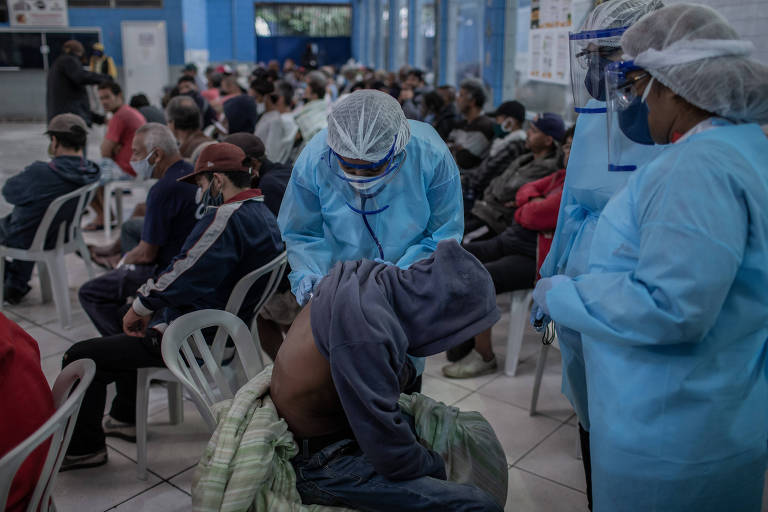Ana Letícia Nery has taken on some gutsy Doctors Without Borders missions: she cared for men and women hit by bomb shrapnel in the Yemen war in 2016; took care of bombing victims in the offensive against the Islamic State in Mosul, Iraq, in 2017; faced the cholera epidemic after the cyclone that devastated northern Mozambique in 2019; and helped children with measles and malaria in the Boko Haram-controlled area in Nigeria, also in 2019.
But the 31-year-old doctor never imagined that she would fulfill a mission in her own country, in the city of São Paulo. Since the end of March, Ana Letícia has spent her days between the São Paulo neighborhoods of cracolândia, Praça da Sé, Largo São Francisco, and shelters for homeless people, such as Boracea, in Barra Funda.
There, her work is similar to that of MSF doctors who entered villages in West Africa during the Ebola epidemic: it was necessary to identify infected people and take them to hospitals to receive treatment and not spread the disease. On Thursday (14), Ana Letícia examined the homeless man Gabriel Almeida, 49, at the Boracea hostel. Burdened with a sore throat, he had left the region of Luz, where he usually sleeps, to seek help at the shelter. The doctor measured fever, oxygenation, and pressure. She asked a few questions and informed Gabriel that he had symptoms of Covid-19. Wrapped in a comforter, shivering with cold, Gabriel started to cry. "I am terrified of dying alone on the street," he said.
Typically, Doctors Without Borders work in countries destroyed by wars, where people are starving, or in epidemics that devastate the world's poorest places. However, in the face of the upcoming health disaster, the organization set up an emergency operation in São Paulo in late March.
Translated by Kiratiana Freelon
